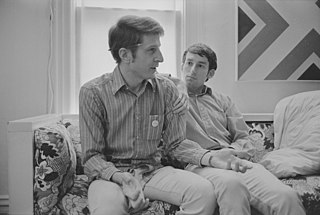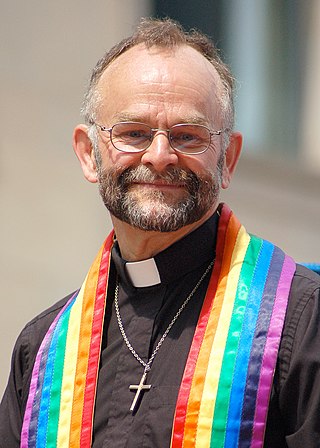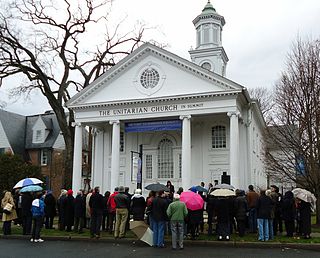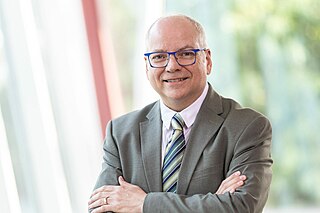Same-sex marriage, also known as gay marriage, is the marriage of two people of the same legal sex. As of 2024, marriage between same-sex couples is legally performed and recognized in 36 countries, with a total population of 1.5 billion people. The most recent jurisdictions to legalize same-sex marriage are Greece and Aruba and Curaçao in the Netherlands. Two more countries, Liechtenstein and Thailand, are set to begin performing same-sex marriages in early 2025.

Same-sex marriage was progressively introduced in several provinces and territories of Canada by court decisions beginning in 2003 before being legally recognized nationwide with the enactment of the Civil Marriage Act on July 20, 2005. On June 10, 2003, the Court of Appeal for Ontario issued a decision immediately legalizing same-sex marriage in Ontario, thereby becoming the first province where it was legal. The introduction of a federal gender-neutral marriage definition made Canada the fourth country in the world, and the first country outside Europe, to legally recognize same-sex marriage throughout its borders. Before the federal recognition of same-sex marriage, court decisions had already introduced it in eight out of ten provinces and one of three territories, whose residents collectively made up about 90 percent of Canada's population. More than 3,000 same-sex couples had already married in those areas before the Civil Marriage Act was passed. In 2023, polling by Pew Research suggested that more than three-quarters of Canadian residents supported the legal recognition of same-sex marriage. Most legal benefits commonly associated with marriage had been extended to cohabiting same-sex couples since 1999.

The availability of legally recognized same-sex marriage in the United States expanded from one state (Massachusetts) in 2004 to all fifty states in 2015 through various court rulings, state legislation, and direct popular votes. States each have separate marriage laws, which must adhere to rulings by the Supreme Court of the United States that recognize marriage as a fundamental right guaranteed by both the Due Process Clause and the Equal Protection Clause of the Fourteenth Amendment to the United States Constitution, as first established in the 1967 landmark civil rights case of Loving v. Virginia.
Same-sex adoption is the adoption of children by same-sex couples. It may take the form of a joint adoption by the couple, or of the adoption by one partner of the other's biological child.

Egale Canada is a Canadian charity founded in 1986 by Les McAfee to advance equality for Canadian lesbian, gay, bisexual and transgender (LGBTQ) people and their families, across Canada.

Same-sex marriage has been legal in Ontario since June 10, 2003. The first legal same-sex marriages performed in Ontario were of Kevin Bourassa to Joe Varnell, and Elaine Vautour to Anne Vautour, by Reverend Brent Hawkes on January 14, 2001. The legality of the marriages was questioned and they were not registered until after June 10, 2003, when the Court of Appeal for Ontario in Halpern v Canada (AG) upheld a lower court ruling which declared that defining marriage in heterosexual-only terms violated the Canadian Charter of Rights and Freedoms.

Same-sex marriage has been legal in Newfoundland and Labrador since December 21, 2004, when the province was ordered by the Supreme Court of Newfoundland and Labrador to issue marriage licences to same-sex couples. This decision followed similar cases in seven other provinces and territories, and pre-dated by seven months the federal Civil Marriage Act of 2005, which legalised same-sex marriage throughout Canada. Newfoundland and Labrador was the eighth jurisdiction in Canada to legalise same-sex marriage, and the eleventh worldwide.

Brent Hawkes, is a Canadian clergyman and gay rights activist.

Canadian lesbian, gay, bisexual, and transgender (LGBTQ) rights are some of the most extensive in the world. Same-sex sexual activity, in private between consenting adults, was decriminalized in Canada on June 27, 1969, when the Criminal Law Amendment Act, 1968–69 was brought into force upon royal assent. In a landmark decision in 1995, Egan v Canada, the Supreme Court of Canada held that sexual orientation is constitutionally protected under the equality clause of the Canadian Charter of Rights and Freedoms. In 2005, Canada became the fourth country in the world, and the first in the Americas to legalize same-sex marriage. In 2022, Canada was the third country in the world, and the first in North America, to fully ban conversion therapy nationwide for both minors and adults.

Halpern v Canada (AG), [2003] O.J. No. 2268 is a June 10, 2003 decision of the Court of Appeal for Ontario in which the Court found that the common law definition of marriage, which defined marriage as between one man and one woman, violated section 15 of the Canadian Charter of Rights and Freedoms.

The legal status of same-sex marriage has changed in recent years in numerous jurisdictions around the world. The current trends and consensus of political authorities and religions throughout the world are summarized in this article.

The Foundation for Equal Families is a Canadian gay and lesbian rights group founded in 1994 following the failure of Bill 167 in the Legislative Assembly of Ontario. The group's mandate is "Dedicated to achieving recognition and equality for same sex relationships and associated family rights through education and legal action". Meeting this mandate was accomplished by intervening in various precedent-setting legal cases, through representation at various pride parades and most notably in suing the Canadian federal government over failure to amend 58 pieces of federal legislation that were charter-infringing due to the definition of spouse.
Kaj Hasselriis is a Canadian journalist, community activist and politician.

Unitarian Universalism, as practiced by the Unitarian Universalist Association (UUA), and the Canadian Unitarian Council (CUC), is a non-Creedal and Liberal theological tradition and an LGBTQ affirming denomination.

Gilles Marchildon is a Canadian francophone activist and LGBT activist currently living in Toronto. He is currently Toronto campus director for Collège Boréal and was instrumental in the campus move to the Historic Distillery District. Prior to that, he worked in the field of health as executive director of the French-language health planning agency Reflet Salvéo from 2014 to 2019 and previously, from 2010 to 2014, as executive director of the community health agency Action Positive VIH/SIDA. He was president of ACFO Toronto and also vice-chair of the City of Toronto's French Language Advisory Committee. He served (2016-2022) on Toronto's Advisory Committee on Seniors Services and Long-Term Care. He also sat on the board of the provincial community foundation, la Fondation Franco-ontarienne, where he was elected president (2019-2022).
This article gives a broad overview of lesbian, gay, bisexual and transgender (LGBT) history in Canada. LGBT activity was considered a crime from the colonial period in Canada until 1969, when Bill C-150 was passed into law. However, there is still discrimination despite anti-discrimination law. For a more detailed listing of individual incidents in Canadian LGBT history, see also Timeline of LGBT history in Canada.
Same-sex marriage is legal in the following countries: Andorra, Argentina, Australia, Austria, Belgium, Brazil, Canada, Chile, Colombia, Costa Rica, Cuba, Denmark, Ecuador, Estonia, Finland, France, Germany, Greece, Iceland, Ireland, Luxembourg, Malta, Mexico, the Netherlands, New Zealand, Norway, Portugal, Slovenia, South Africa, Spain, Sweden, Switzerland, Taiwan, the United Kingdom, the United States, and Uruguay. Same-sex marriage is recognized, but not performed in Israel.
Gemma Hickey is a Canadian LGBTQ rights activist and author. They became one of the first Canadians to receive a gender-neutral birth certificate and passport. Hickey founded The Pathways Foundation, an organization that offers support to survivors of religious institutional abuse and their families. Since 2010, Hickey has worked as Executive Director of Artforce, formerly known as For the Love of Learning, a non-profit that works to forge new paths for at-risk youth by advancing their literacy and creative skills.

Intersex people in Canada have no recognition of their rights to physical integrity and bodily autonomy, and no specific protections from discrimination on the basis of sex characteristics. Academic advocates including Janik Bastien-Charlebois and Morgan Holmes, and organizations including Egale Canada and the Canadian Bar Association have called for reform.










